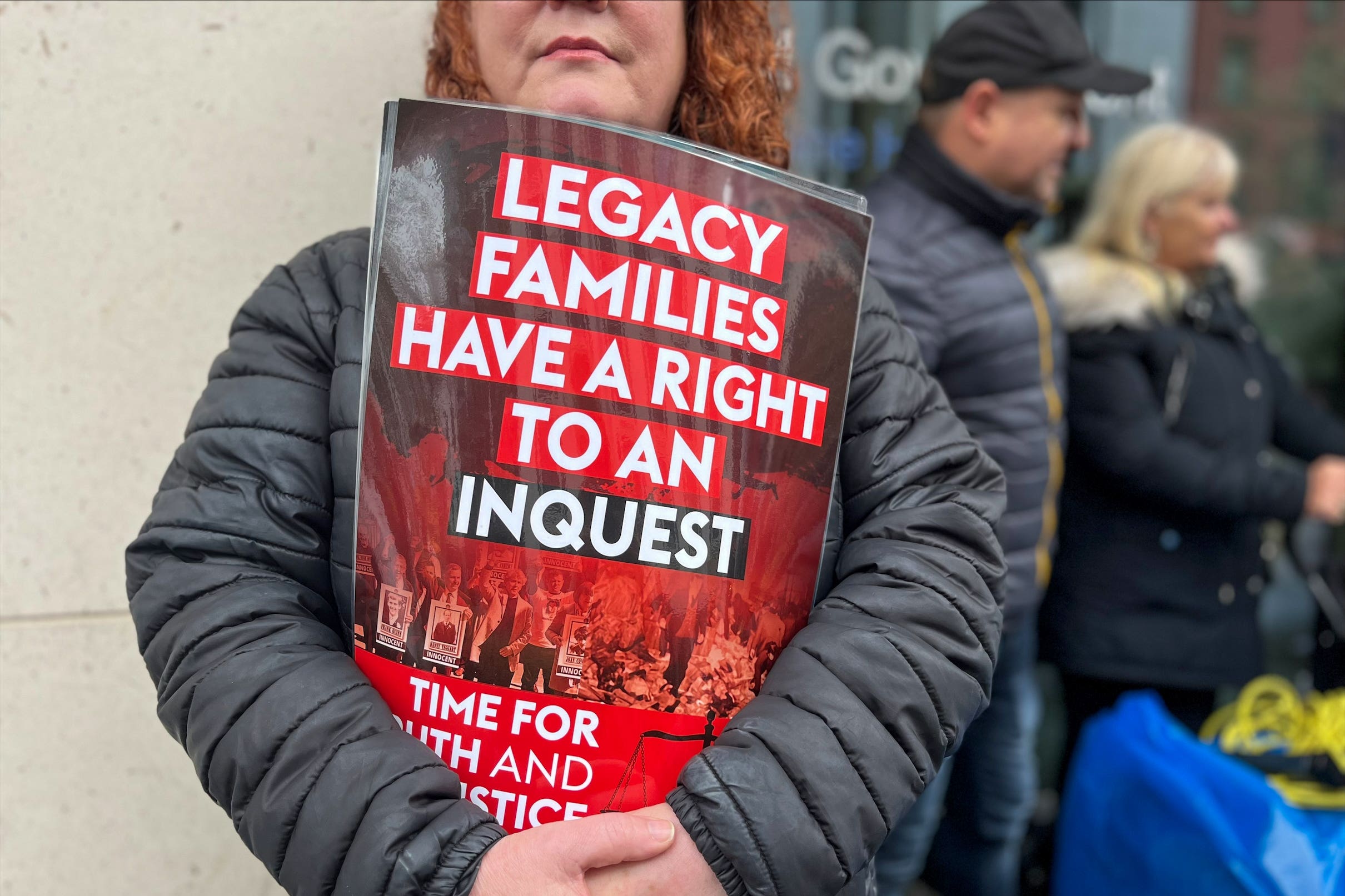UK Government urged to reflect as legacy Bill fails to pass before recess
The Bill would give immunity from prosecution for Troubles-related offences to people who co-operated with a truth recovery body.

The UK Government has been urged to reflect on its controversial legacy Bill as it failed to make it on to statute before the summer recess.
Peter Kyle MP, Labour’s shadow secretary of state for Northern Ireland, said the Bill should be shelved.
“As the Government has failed to ram through the legacy Bill by July as they recklessly intended, Labour is urging them to reflect over the summer and shelve their plans,” he said.
“It’s time Rishi Sunak listened to Northern Ireland parties, all of whom oppose this Bill that delivers more for terrorists than victims.
“If the Conservatives have given up being an honest broker, they should step aside so Labour can clean up the mess they’ve made and be the partner Northern Ireland deserves.”
The Northern Ireland Troubles (Legacy and Reconciliation) Bill would give immunity from prosecution for Troubles-related offences to people who co-operated with a truth recovery body.
It would also prevent future civil cases and inquests.
The immunity element of the Bill was removed by the House of Lords, but reinstated when the legislation returned to the House of Commons on Tuesday.
In June, Cabinet Office minister Johnny Mercer said the Government’s view was that the legislation would clear all stages by the summer recess.
On Wednesday morning Lord Caine, parliamentary under-secretary of state for Northern Ireland, said the Bill’s failure to pass before recess was “entirely down to the volume of legislation that we’ve had to deal with in the House of Lords”.
Lord Caine also described the immunity element of the Bill, which has faced opposition in Northern Ireland and in the House of Lords, as “contentious”.
The Bill is opposed by all major Stormont parties, the Irish Government and victims’ campaign groups.
However, Lord Caine said it is a realistic assessment of what can be done two decades after the Good Friday Agreement.
“What the Government has done is tried to make a realistic assessment of what can be delivered for victims and survivors and families of those who’ve lost loved ones during the Troubles, bearing in mind that we’re now a quarter of a century after the Belfast agreement, nearly 30 years since the ceasefires, and well over 50 years since the outbreak of the Troubles themselves,” he told the BBC.
“So it’s a realistic assessment of what can be delivered in circumstances where, frankly, the prospects of prosecutions is going to be vanishingly rare.
It's not a general immunity from prosecution, it's in respect of specific incidents
“I do appreciate that this is incredibly difficult and challenging legislation.”
Lord Caine said the Bill would not provide a general immunity from prosecution for people who committed crimes during the Troubles, only for those crimes that were dealt with by the Truth Recovery Commission.
Article 2 of the European Convention on Human Rights says an inquiry after a suspicious death must be designed to lead to criminal proceedings where appropriate.
“The contentious element of this, of course, which is very difficult for people, is the conditional immunity model,” said Lord Caine.
“Under the Government’s proposals, the review mechanism that’s in the legislation would allow for full Article 2-compliant criminal investigation.
“The difference is, if the individual co-operates with the commission fully, and gives an honest and truthful account, which will be validated by the commission, then they will be eligible for immunity in specific circumstances relating to that particular incident.
What I did was bring forward amendments at report stage of the Bill which were agreed by the Commons yesterday to make the immunity process much more robust
“It’s not a general immunity from prosecution, it’s in respect of specific incidents.
“If they don’t co-operate to the standard that is expected in legislation with the commission, then the commission won’t grant them immunity and they will still be open to prosecution in the normal way.”
Lord Caine said he has made changes to the legislation to try to make it more acceptable to its opponents.
“When this was going through the House of Lords at committee stage, I did take on board a number of representations from colleagues and also from various groups who argued that the bar was too low,” he said.
“So what I did was bring forward amendments at report stage of the Bill which were agreed by the Commons yesterday to make the immunity process much more robust.
“In particular, to ensure that the commission has to take all reasonable steps to satisfy themselves of the validity and truthfulness of an individual’s account.
“In circumstances where somebody’s account is found to have been untruthful, I again amended the Bill to make sure that, if they had previously been granted immunity, that immunity can be revoked.”
Families of victims have taken part in numerous protests opposing the Bill, saying it deprives their loved ones of justice.
Lord Caine said those affected by incidents being investigated by the commission would be invited to give evidence.
“To raise the point about the views of victims… again, I amended the Bill to ensure that one of the provisions that’s now included is a victims’ impact statement, which is something that the Victims’ Commissioner in particular asked for, so that victims will be able to submit an impact assessment which will form part of the final report.
“Victims, as a result of the amendments in the Commons yesterday, will also, when a review/investigation is launched, be able to submit a series of questions about an incident which the commission will be under an obligation to the best of its ability to answer, which will then form part of the final report.”
Subscribe to Independent Premium to bookmark this article
Want to bookmark your favourite articles and stories to read or reference later? Start your Independent Premium subscription today.
